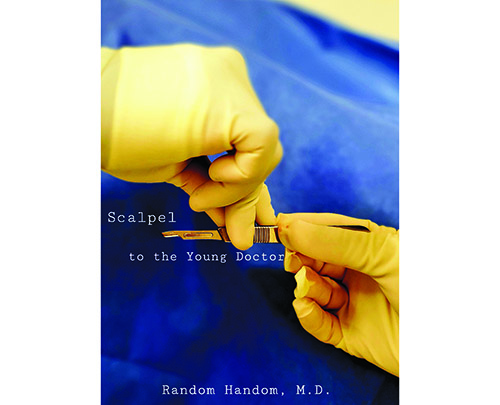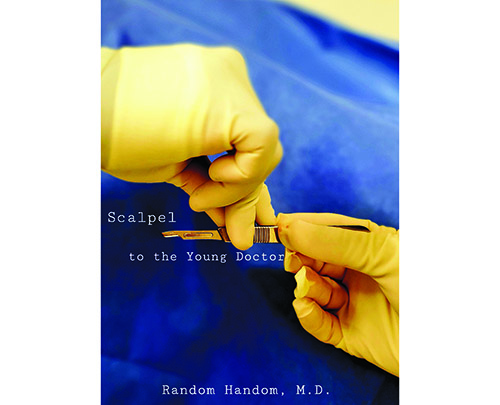
Highlighting: “Scalpel to the Young Surgeon,” by Dr. Joseph Rosenbaum. Currently available on Substack.
Joseph Rosenbaum grew up in Fair Lawn, where his flair for writing was sparked. His mother, a published author of multiple children’s books, brought home dozens of new books from the library each week for him and his siblings to sample. While at RYNJ for elementary school, he developed a flair for writing and went on to cultivate it while attending the Mesivta of North Jersey. His passion continued even while studying at Yeshivat Shaalvim, where he composed a weekly email digest for his friends, chavrutot and family members about the happenings of the week. At Yeshiva University, he completed a creative writing minor along with his major in pre-medical studies.
After playing a season of professional baseball for the reigning champion, Beit Shemesh Blue Sox of the Israel Baseball League, Rosenbaum returned to the U.S. to pursue his medical studies at the Albert Einstein School of Medicine. After graduation, he interned at SUNY Downstate from 2013 to 2014. He completed a residency in Columbus, Ohio, from 2015 to 2018. From 2018 to 2019 he completed a fellowship at the University of Cincinnati in hand surgery. A severe hand injury in high school, and his complete recovery, had inspired Rosenbaum to become a hand surgeon. Currently, he resides in New Rochelle and practices in Westchester. He is married to Ariella, who teaches science at Ma’ayanot High School in Teaneck. Sons Yoni, 12, and Sam, 6, attend Westchester Torah Academy. Youngest son David is 1.
In March of 2020, Rosenbaum and his family, along with the rest of their synagogue, were quarantined at home due to potential COVID exposure in what was inaccurately called “COVID Ground Zero” at the time. An old copy of Dr. Michael Collins’ “Hot Lights, Cold Steel,” a surgeon-in-training memoir published in 2005, drove Rosenbaum back to writing.
“Like many others, I found myself suddenly stuck indoors for an undefined period of time,” recalls Rosenbaum. “Helicopters swirled overhead daily. The National Guard came into town. We couldn’t even leave the house, and there was no expiration date on our quarantine. To protect my sanity, I needed something to do that was more productive than bingeing Netflix… I found a book that was on my pre-med recommended reading list and re-read it. It was enjoyable but also felt distant. Medical care and healthcare delivery have changed significantly since that author’s days as a resident. I decided to begin chronicling my own experiences, one story at a time, and they continued to build and build until I had written a novel.”
Rosenaum’s novel, entitled “Scalpel to the Young Surgeon,” recounts his experiences as a surgical trainee, touching upon key themes like the Surgeon’s Code, honesty in medicine and
obstacles preventing the delivery of efficient and affordable healthcare in the modern age. It also discusses the difficulties of being an observant Jew in such a demanding profession.
“Surgeons in training are expected to be available at all times, regardless of external circumstances,” Rosenbaum related. “There is no such thing as a shomer Shabbos residency in orthopedics. It simply does not exist. Even if it did, I’d be concerned about the animosity that might create with my colleagues. I wouldn’t want to be in that position.”
The novel begins with a fast-paced, first-person, present-tense introduction, describing a young patient with a severe hand injury who is rushed to the operating room for repair. It then transitions to a past-tense memoir for the next 28 chapters, describing a doctor’s journey from naive intern to graduating surgeon. “The final chapter reveals something very important about the patient in the introductory chapter,” Rosenbaum said, “and poignantly recalls that story in another context to deliver a central message.”
Rosenbaum completed the novel in late 2020, months into the pandemic and having returned to work as a hand surgeon in Westchester. “My goals for the novel are fluid, but currently, I’d love to get it published and grace those same pre-med recommended reading lists in which I found Dr. Collins’ book,” Rosenbaum explained. “ I want to inspire the next generation of doctors to remember their humanity during training, and provide them with the reassurance that even though things sound bleak, medicine is still a noble and rewarding field, and very much worth pursuing.”
Rosenbaum is currently looking for a publisher for the completed novel. During his search, his brother recommended that he try generating some initial interest by releasing it on Substack.
“Substack is a writer-created platform for electronic distribution of newsletters, stories or any other written content one can imagine,” he explained. “I already had a foundation on which to build. In 2019 I started an anonymous Twitter account to promote hand-surgery educational tweets, which are called ‘tweetorials,’ and have garnered a considerable following. I decided to use this anonymous platform to create buzz about the book, but at the same time wanted to maintain my anonymity if possible. Thus, I created an edited, anonymous version of the book with most of the identifying personal details scrubbed. I then started releasing it weekly on Substack.”
The Substack now has over 100 subscribers who receive weekly delivery of the latest chapter.
Rosenbaum’s most popular chapter has already earned more than 1300 reads. Rosenbaum is currently halfway through releasing the novel. The first 14 chapters have been released, with positive early reviews from fans both in the U.S. and abroad.
The anonymous version of the book, currently being released on Substack, can be found by entering the web address RandomHandom.Substack.com into a browser. One can either choose to read the book there or can easily subscribe for weekly email inbox delivery of the next chapter. Chapters are released roughly once a week, typically on Fridays.
“Any suggestions for publishers would be greatly appreciated,” shared Rosenbaum.
By Pearl Markovitz













